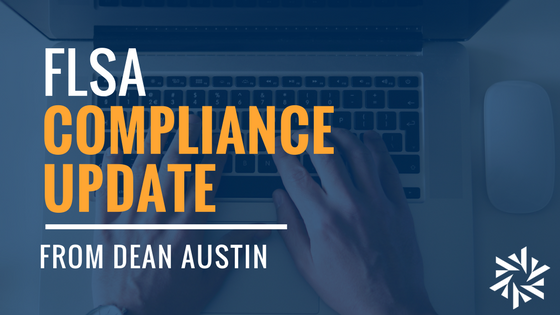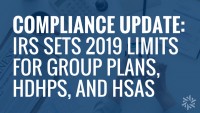
Last October, Austin Benefits Group hosted a seminar regarding possible changes to the FLSA Overtime Rule. Those changes were blocked by a federal judge in Texas by a temporary injunction. Today, we are bringing you updates to a new bill to amend FLSA policies regarding overtime and compensatory time off.
House passes Changes to Overtime Rules
On May 2, 2017, the House of Representatives passed the Workers Families Flexibility Act (also known as H.R. 1180). If approved, H.R. 1180 would authorize private employers to offer compensatory time instead of overtime pay for nonexempt employees who work more than 40 hours per week. H.R. 1180 still needs approval from the Senate and the executive branch before it becomes law.
Compensatory time off is already a common practice for many federal and state employers, but it is not currently allowed by the Fair Labor Standards Ace (FLSA) for private employers. H.R. 1180 would amend the FLSA to allow this practice, if certain conditions are met.
Because H.R. 1180 is not yet law, no action steps are currently required of any employers.
Highlights of H.R. 1180
Compensatory Time Off
Allow private sector employers to provide either overtime pay or compensatory time off to nonexempt employees who work overtime hours.
Compensatory time off would be calculated at the rate of 1.5 hours of compensatory time off for every hour of overtime work.
H.R. 1180 would expire within five years of its enactment.
Limit the amount of compensatory time off eligible employees may receive to 160 hours.
H.R. 1180 would only apply to private sector employers (It would not affect current compensatory time off requirements for public sector employees.)
Voluntary Agreement and Usage
Both employers and employees would have to agree to compensatory time off instead of overtime wages.
In unionized environments, compensatory time off would have to be allowed by any applicable collective bargaining agreement. The agreement would need to be preserved in writing and take place before any compensatory time off begins to accrue.
The language of H.R. 1180 would prohibit employers from coercing or forcing employees to agrees to receive or use compensatory time off instead of overtime wages. (Barring employers from directly or indirectly intimidating, threatening, or coercing employees in regards to compensatory time.)
Eligibility
Employees would be eligible to receive compensatory time off after 1,000 hours of continuous employment during the previous 12 months.
Payment for Unused Compensatory Time
Require employers to allow employees to use any earned compensatory time off within a reasonable period, as long as this does not unduly disrupt the employer’s operations.
Employers would be required to provide monetary compensation to their employees for any compensatory time off that is not used by the end of the calendar year. (Employers would be able to determine a different 12-month period as long as it remained consistent.)
Unused compensatory time would need to be paid at a rate at least equal to the employee’s regular age rate. The employee’s regular wage rate would be the higher of:
- the regular wage rate at the time the overtime work was performed, or
- the regular wage rate at the time the unused compensatory time off must be paid
Payment for the unused compensatory time off would be required within a month at the end of the 12-month period.
We will continue to monitor the progress of H.R. 1180 through the legislative process as well as any developments In relation to the Overtime Rule and update you as more information becomes available.
Please contact your dedicated Account Manager or call us at 248.594.5550 if you have any questions or concerns, your Austin team is here to help.




